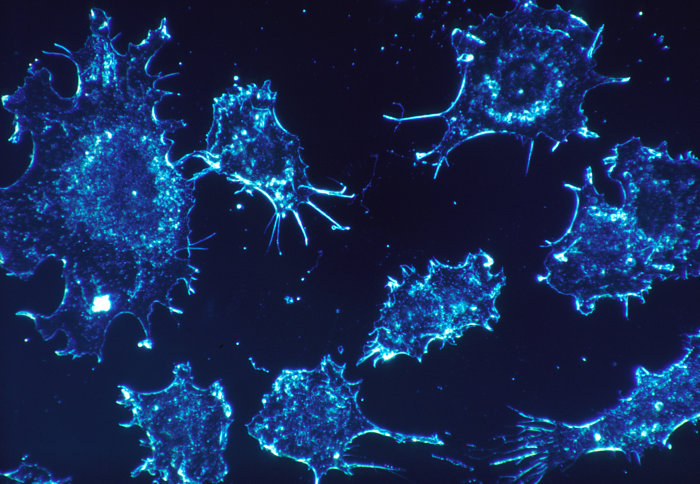Imperial takes the lead on a global study of HIV-associated liver cancer

Research from the Liver Cancer Research Group at Imperial has shed new light on the natural course of liver cancer in people living with HIV.
In a report recently published in the Journal of Clinical Oncology, Dr. David James Pinato, who led a collaborative study including more than 1500 patients across the globe, reveals that the survival of patients who are diagnosed with liver cancer on a background of HIV is far worse than HIV-negative counterparts with liver cancer.
Liver-related morbidity and mortality is rapidly expanding in people living with HIV. Hepatocellular cancer (HCC) is a major cause of death in this patient population, even when HIV infection is maintained under control. We have shown that HIV infection increases the hazard of death from HCC by 24% and that this excess mortality is independent of a number of confounders including treatment, geographical origin, stage and liver function.
Prof. Mark Bower, Director of the National Centre for HIV Malignancy at Chelsea and Westminster and co-author on the study comments:
“Whilst overall survival for most people living with HIV and cancer is now the same as for the HIV negative population, the outcomes in liver cancer have been unanswered for a number of years. Most previously published reports are inconclusive because they include only small numbers of patients. In this global study, we have combined data from Chelsea & Westminster Hospital and several well-established consortia including the Liver Cancer in HIV, ITA.LI.CA. and the Singapore General Hospital registry. This has allowed us to demonstrate a significant difference in survival. The reasons behind our findings will be explored in ongoing laboratory studies of the immunopathology of these tumours and may lead to improved management of these patients.”
We wish to acknowledge the support of the Chelsea and Westminster Hospital NHS Foundation Trust Joint Research Committee, for the study of the immunopathology of these tumours.
Article text (excluding photos or graphics) © Imperial College London.
Photos and graphics subject to third party copyright used with permission or © Imperial College London.
Reporter
Dr. David James PINATO
Department of Surgery & Cancer
Benjie Coleman
Department of Surgery & Cancer